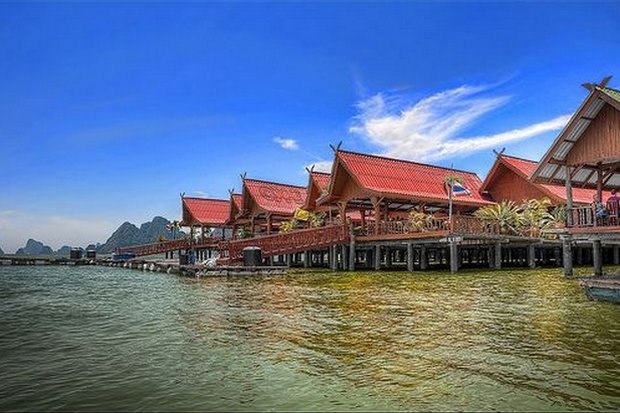
The Transport Ministry promised Wednesday to postpone the implementation of the 2017 Act on Navigation in Thai Waters as protests by affected parties escalate.
Speaking after a meeting with a group calling itself the Federation of Fish Cage Farmers in Five Regions, Deputy Transport Minister Pichit Akrathit said the ministry agreed to delay the implementation of the law until it is amended to suit the way of life of people living by rivers.
The Marine Department earlier issued an announcement to increase the penalty for acts deemed to be illegally occupation of waterways.
Offenders will be subject to a fine of between 500 baht and 10,000 baht or imprisonment.
Announced in the Royal Gazette on Jan 24, the law took effect on Feb 23 but will be enforced from tomorrow.
It is designed to be a legal mechanism to better control buildings and other types of structures built or placed in rivers, canals and seas as well as on public beaches.
The law is designed to help save watercourses for merchant marine, agricultural practice and flood prevention purposes.
Under the law, those who fail to notify the Marine Department by today about their buildings or activities subject to regulation under the law, may face a maximum prison sentence of three years or be required to pay a fine calculated based on the size of space of the waterway they are occupying.
The fine starts from 1,000 baht per square metre. The maximum fine is limited to 20,000 baht.
The department will inform those who notify it by today whether a permit can be issued for them to continue occupying the water areas. If not, they will have to remove their buildings within 60 days.
Methi Amphaiphit, a coordinator of the protest group, said his group will return in a week or so to follow up on the ministry's progress in implementing what it promised to do with the law.
There are at least 100,000 people nationwide who will be affected by the new law, he said.
Meanwhile, 320 households in a village on Koh Panyi in Phangnga's Muang district plan to petition the government against the strict enforcement of the law.
Muhammad Prasanphan, the kamnan of tambon Koh Panyi revealed Wednesday that he and other community members would be travelling to Bangkok to submit a petition to Gen Prayut.
"We, the Panyi people, have been residing here in our pole houses for more than 300 years. And now there are about 1,600 residents in roughly 320 households who are all being affected by this new law," he said.
The villagers will not be capable of paying such high fines under the new law, which may amount to several million baht in total, he said.
There are more people living in at least six similar communities in the province that are probably affected by the same law as well, he added.
Charoen Srithong, the president of a group of health volunteers and rescuers, said most, if not all, people in Panyi village are worried about the new law.
They would like to call for a waiver that will spare them from this "overwhelming financial burden", he said.